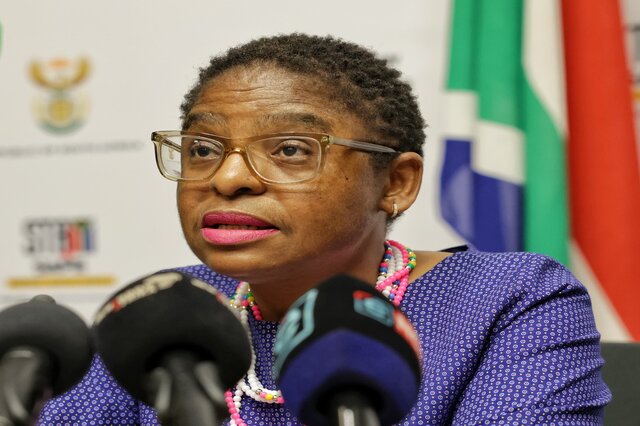Cape Town — Minister in the Presidency, Khumbudzo Ntshavheni, said Minister of Communications, Solly Malatsi, had no right to withdraw the SABC Bill.
During a media briefing, Ntshavheni revealed that the withdrawal of the bill, which aimed to find a sustainable funding model, should have first gone through the Cabinet before he announced to withdraw of the bill, EWN reported.
At the time, the withdrawal caused a row in Parliament as the communications committee was not informed beforehand and she explained that the matter would now be discussed during the next Cabinet meeting.
Parliament’s Communications Committee Chairperson, Khusela Diko, said Malatsi had informed the Speaker of his decision, yet it was “highly ill-advised”.
“It’s not a private member’s bill. It’s not Minister Malatsi’s bill. It’s a bill of the Cabinet and the executive. So, in terms of the law, he cannot withdraw it without coming to Cabinet to agree for its withdrawal,” she said of the Minister’s decision.
[WATCH] Minister in the Presidency Khumbudzo Ntshvheni says Communications and Digital Technologies Minister Solly Malatsi has no powers to withdraw the SABC Bill after it was approved by the cabinet.#Newzroom405 pic.twitter.com/dBkl7vOSQk
— Newzroom Afrika (@Newzroom405) November 13, 2024
According to The Citizen, the bill’s withdrawal will be discussed at next week’s Cabinet meeting, where a final decision will be taken.
“There’s no minister, even myself, I can’t withdraw any bill which has been approved by Cabinet unless it’s a private member’s bill,” she said.
She added that, whatever limitations the minister may find, he needs to convince the Cabinet to say what the limitations are and he should provide reasons for why the amendments are made and then make a request to withdraw the bill.
“So it was not discussed in Cabinet and it’s not his bill, it’s what we call an executive bill. The rules and laws are very clear on how that gets treated and we are going to address it as such,” she said.
The SABC Bill was tabled in Parliament in October 2023 by Mondli Gungubele and sought to replace the old Broadcasting Act of 1999/ The draft legislation proposed a new funding model for SABC, and to replace the current TV license fee with a household levy.
The bill, however, faced significant opposition from civil society organisations, including Media Monitoring Africa (MMA), the South African National Editors’ Forum (Sanef), and AfriForum, as well as from major broadcasters like MultiChoice and eTV.
Follow African Insider on Facebook, Twitter and Instagram
Picture: X/@GovernmentZA
For more African news, visit Africaninsider.com
Compiled by Matthew Petersen


